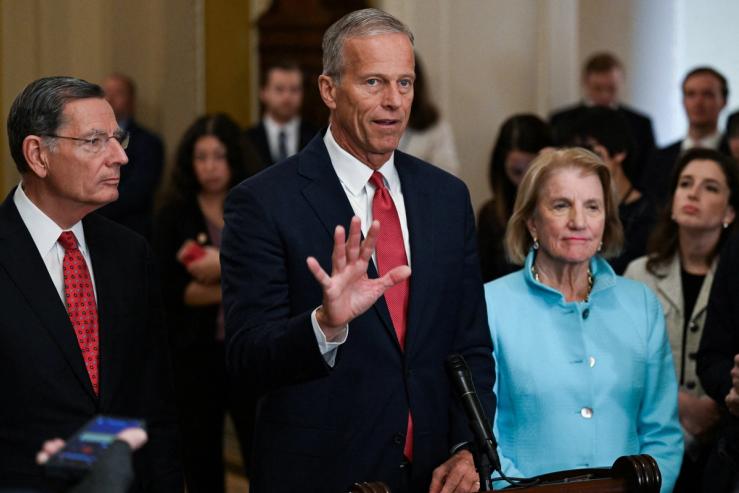The News
Senators on Sunday neared a bipartisan deal that could reopen the government as soon as this week, though several big hurdles remain.
Lawmakers and aides said they expect the final product, still in its early stages, to combine three full-year appropriations bills with a stopgap bill that extends all other spending levels through Jan. 30. Republicans would separately make commitments to Democrats on health care, such as a vote in December on extending enhanced Affordable Care Act tax credits, though the details of those agreements remain nebulous.
The two parties have also discussed reversing President Donald Trump’s firings of federal workers during the 40-day shutdown, but there’s no firm deal on that front yet. There’s also no health care vote on offer in the House, where Republican leaders have raised concerns over extending the credits in their current form.
Two of the three promised full-year spending bills were released Sunday afternoon; all three enjoy the support of Sen. Patty Murray, D-Wash., the caucus’ top appropriator, a person familiar with the talks told Semafor. Senators expect to hold party meetings Sunday before taking an initial evening vote on advancing the broader deal after more text is released.
“It’s just a matter of one or two things to be worked out,” Sen. Mike Rounds, R-S.D., said leaving a meeting with other Senate Republicans Sunday afternoon. “And I think they’re trying to negotiate that across the aisle as well.”
Know More
Republicans likely need at least eight Senate Democrats, who have been meeting for days on a bipartisan path forward, to break the 60-vote threshold to end debate on the bill.
“Then there’s issues, there’s holds, who knows — but we could still vote to get on the bill and work those other issues out while it’s being debated,” Sen. Markwayne Mullin, R-Okla., said.
The emerging deal may ultimately divide Democrats, many of whom want to continue pushing for more concrete wins on health care costs than they’d get under its terms.
“Yes, [Trump] is still saying you’ve got to get rid of the filibuster — but he is talking now about health care initiatives,” said Sen. Lisa Murkowski, R-Alaska, referring to Trump’s weekend suggestion to let those insured under the ACA have more control over the money that would have gone toward the insurance credits. “I think that’s progress.”
All 100 senators would need to agree to expedite the process; just one of them could delay passage for days by objecting to a time agreement. Some Democrats will not be able to support the deal, but whether they hate it enough to drag it out is another question entirely.
Any deal on federal workers — a big priority of Democrats — could serve as a compelling sweetener.
The House would then have to return to Washington this week amid disrupted air travel for its own vote.

